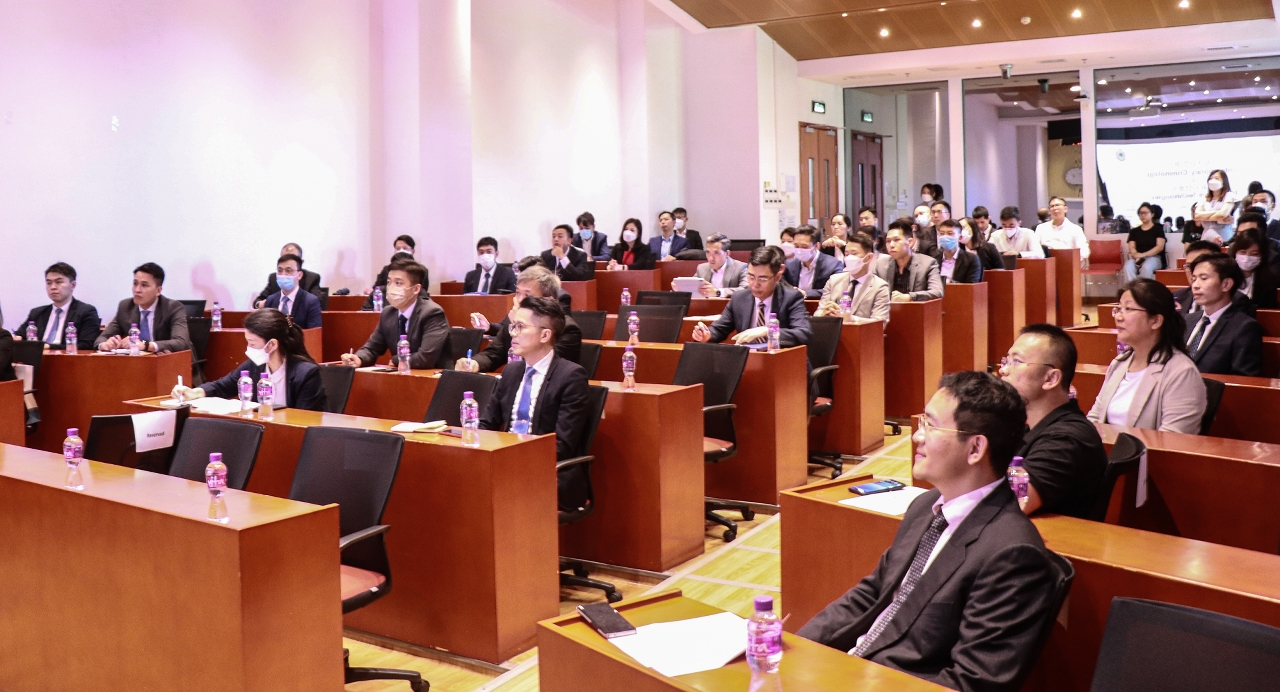 The Big Data Analytics in Law Enforcement Symposium
The Big Data Analytics in Law Enforcement Symposium
The University of Macau (UM) Faculty of Social Sciences (FSS) held the inaugural Big Data Analytics in Law Enforcement Symposium to provide an academic platform for senior law enforcement officers in Macao and Hong Kong to exchange views in state-of-the-art research findings and practical experiences informed by empirical evidence.
Representing the dean of the FSS, Associate Dean Cai Tianji said that the symposium aimed to facilitate the exchange of professional knowledge in the conceptualisation of theories and cutting-edge computational and quantitative analysis techniques, explore the application of big data analytics in law enforcement, and improve the mindset and capabilities of law enforcement officers in handling complex data and advanced computational tools in order to enhance their understanding of the application of big data in the three major areas of law enforcement, namely policing, customs and excise, and corrections.
Li Kin Kei, head of the Office of Information Technology of the Hong Kong Customs and Excise Department, gave a talk titled ‘Contemporary Criminology × Innovative Technologies’ to discuss the main areas of law enforcement where big data analytics is being applied, including the definitions of various types of big data in law enforcement and the results of recent measurements and research into them; theories and conceptual approaches to crime and criminal justice from a big data perspective; major big data sources and methods used to measure crime or other types of deviant behaviour; biases in data collection and interpretation; common pitfalls in the application of big data analytics in law enforcement; real-world applications of big data analytics in screening and stop-and-search of passengers by the Hong Kong Customs; and the Community Isolation Facilities Collaboration and Operation (Co‐Op) Platform developed by the Hong Kong Customs using cloud technology. Li concluded the talk with a summary of the theories and conceptual approaches to crime and criminal justice from a big data perspective.
During the Q&A session, the delegation from the Hong Kong Customs and Excise Department, as well as representatives from the Macao Customs Service and the Boarder Control Department of the Macao Public Security Police Force, shared their insights into the characteristics of crime in Macao, Hong Kong and other regions, including the causes, trends, and consequences. They also discussed in-depth the patterns of contraband smuggling by cross-boundary passengers and cargoes between Macao and Hong Kong, addressing questions such as how law enforcement officers can utilise big data analytics to identify the most efficient stop-and-search, enhance detection strategies by using the set of risk factors identified, and thus create an evidence-based approach to predict the patterns of contraband smuggling.
The symposium was moderated by Jiang Bo, professor in the FSS. Members of the delegation from the Hong Kong Customs and Excise Department also included Kwong Tze Ping, senior inspector in the Information Systems Administration Division; Chan Po Hung, senior inspector in the Computer Forensic and Information Technology Security Division; Wong Tsz Yan, senior inspector in the Information Systems Administration Division; and Lee Ming Wai, inspector in the Information Systems Administration Division. The event was also attended by 23 representatives from the Data Governance Group, led by the Unitary Police Service, as well as 30 Macao law enforcement officers currently enrolled in the Master of Social Sciences (Public Security Management) programme jointly offered by UM’s FSS and the Academy of Public Security Forces of Macao.





